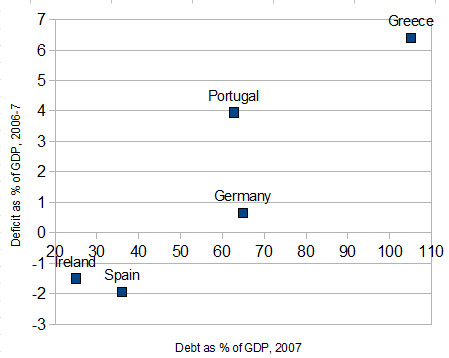The most curious thing about Mr Krugman's quasi-religious squeamishness about the "commercial transaction" is that it is normally the economist's lot to explain to the superstitious public the humanitarian benefits of bringing human life ever more within the cash nexus.Wilkinson's entire post is (unintentionally) interesting and you should definitely take a look at it (though you should also take a look at the rebuttals here and here), but for a distillation of the freshwater mindset, you really can't beat the line about 'the economist's lot.' (I suspect Wilkinson may have been going for humorous wording here but I doubt very much he was joking.)
For a less pithy though perhaps more instructive example, consider these comments Steve Levitt made on Marketplace:
One of the easiest ways to differentiate an economist from almost anyone else in society is to test them with repugnant ideas. Because economists, either by birth or by training, have their mind open, or skewed in just such a way that instead of thinking about whether something is right or wrong, they think about it in terms of whether it's efficient, whether it makes sense. And many of the things that are most repugnant are the things which are indeed quite efficient, but for other reasons -- subtle reasons, sometimes, reasons that are hard for people to understand -- are completely and utterly unacceptable.As I said at the time:
There are few thoughts more comforting than the idea that the people who disagree with you are overly emotional and are not thinking things through. We've all told ourselves something along these lines from time to time.
But can economists really make special claim to "whether [ideas] makes sense"? Particularly a Chicago School economist who has shown a strong inclination toward the kind of idealized models that have great aesthetic appeal but mixed track records? (This is the same intellectual movement that gave us rational addiction.)
When I disagree with Dr. Levitt, it's for one of the following reasons:
I question his analyses;
I question his assumptions;
I question the validity of his models.
Steve Levitt is a smart guy who has interesting ideas, but a number of intelligent, clear-headed individuals often disagree with him. Some of them are even economists.



